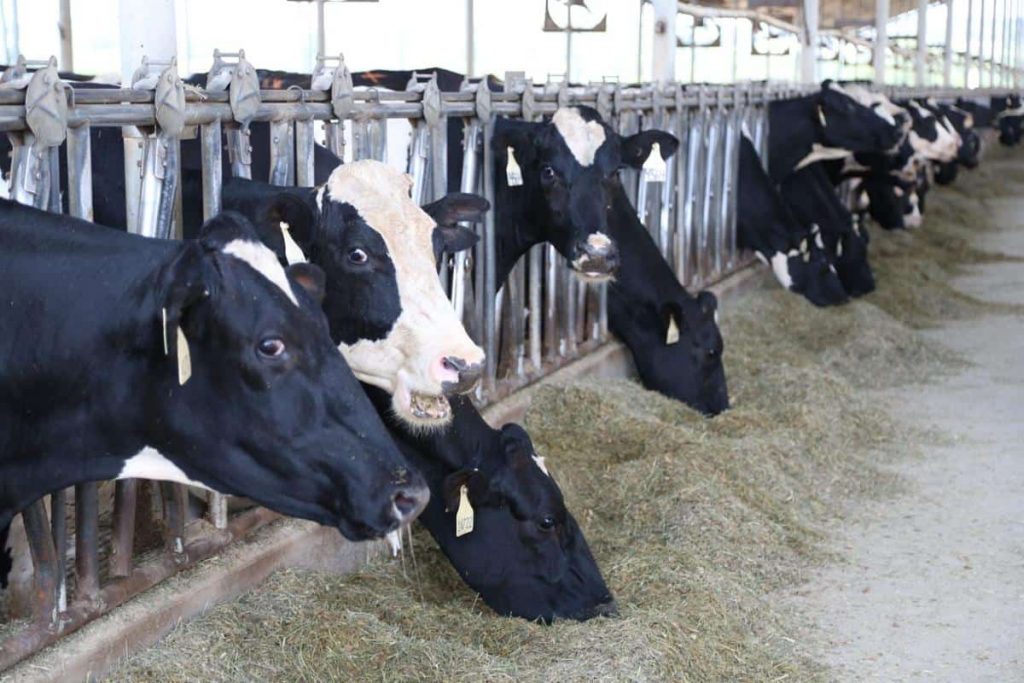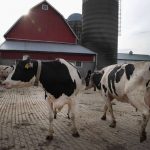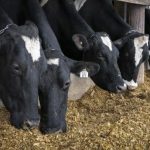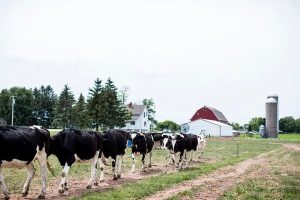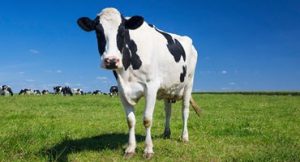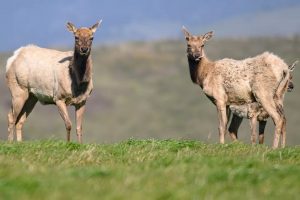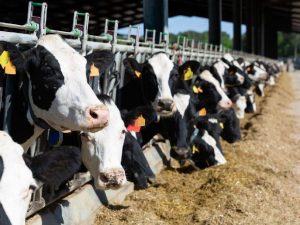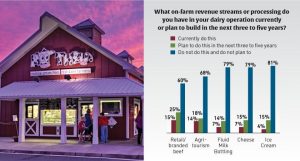
Legal maneuvering, including a 2001 law and lawsuits, combined with give-and-take negotiations created what some parties to the controversy, both upstream and downstream, have called a success story. Lake Waco water tastes and smells better, phosphorous levels have fallen, and once rampant algae blooms have been tamed.
But House Bill 2827, introduced by Texas Rep. DeWayne Burns, a Republican from Cleburne, threatens to undo progress made, Waco Mayor Dillon Meek said. Meek is rallying opposition to the bill. Burns, meanwhile, said in a phone interview he means Waco no harm, that regulations meant to ensure water quality in the watershed would remain in force under his bill.
He wants to eliminate hoops dairy farmers must jump through to make even subtle changes to their operation, red tape that proves costly and time consuming.
“The last thing I want to do is turn back the clock,” Burns said.
The Waco-based Texas Farm Bureau and the Texas Association of Dairymen have endorsed the bill Burns filed on Feb. 24. It continues to progress through the House, having been voted out of committee Tuesday, though the committee report necessary for it to be considered by the full House has not yet been filed.
A bill that would change permitting rules in the Bosque River watershed got a hearing April 13 in front of the Environmental Regulation Committee of the Texas House. The city of Waco and most local entities oppose the bill due to water quality concerns. Speaking in favor of the bill are its sponsor, DeWayne Burns, R-Cleburne, and Darren Turley of the Texas Association of Dairymen. // Source: Texas Legislature
“We’ve adapted to much higher standards than those in place in much of the state and nation, and we’re not asking to change those,” Texas Association of Dairymen Executive Director Darren Turley said. “This is not about new growth. It’s about making operations less costly for producers going forward. This bill does not change regulatory endeavors.”
A flyer the association produced supporting House Bill 2827 says, “Central Texas is one of the most regulated watersheds in the nation” owing to the Texas Commission on Environmental Quality imposing regulations on the Bosque watershed that affect municipalities from Stephenville to Waco and dairies in Erath, Comanche and Hamilton counties.
The rules are largely focused on disposal of cow manure at dairy operations, which involve high numbers of cattle in a concentrated area. The rules primary target phosphorous, aiming to keep it below levels that fuel harmful algae growth.
The point of contention, said Burns and Turley, is the difference between a general permit and an individual permit, both issued by the TCEQ. Dairies on the North Bosque operate under an individual permit. The state dairy group says such a permit “requires more intensive management, is more expensive to prepare and submit, and requires more TCEQ staff time to review and process, resulting in significant delays to obtain or renew individual permits.”
Gary Joiner, spokesperson for the Texas Farm Bureau, said in a statement: “TFB has long held that individual permits for dairies in the North Bosque River watershed were unnecessary. Over the years, provisions included in the individual permits have been used to pressure dairies into adopting expensive and unnecessary practices under the threat of costly legal proceedings.
“These same provisions have stifled innovation in the watershed due to the costs and burdens of permit revisions.”
Transitioning from individual permits to a general permit, said Joiner, “would end the requirement that TCEQ conduct soil sampling at various depths on dairies in the watershed.” He said the sampling requirement has been burdensome for farmers and the TCEQ, “with very little benefit to either.”
“Soil sampling protocols with the general permit are more than adequate to inform management decisions and regulatory compliance,” Joiner said.
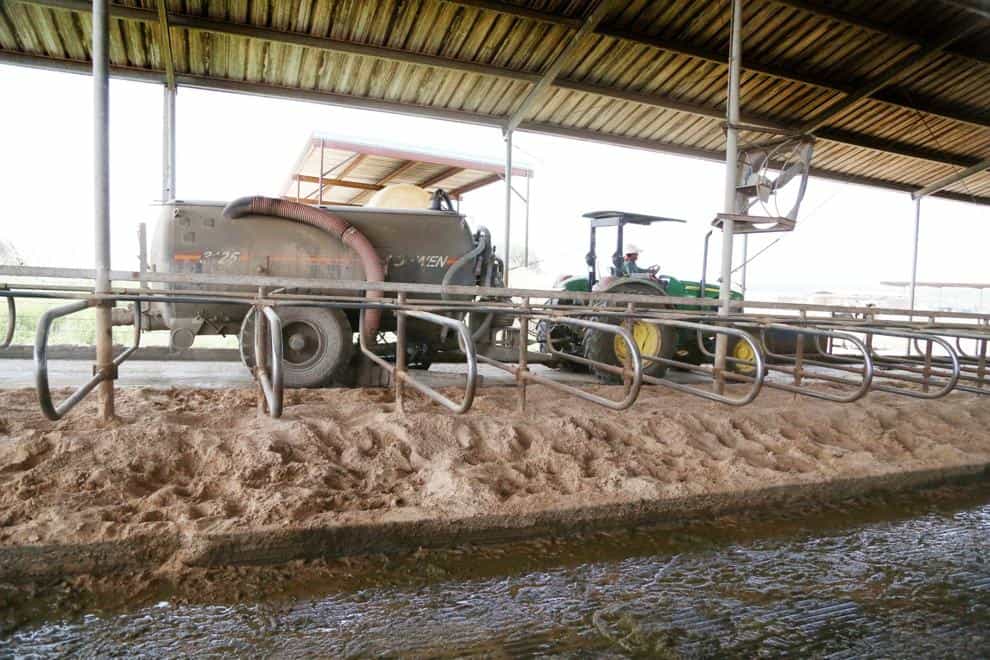
Rod Aydelotte, Tribune-Herald file photo
The bill also would end requirements that dairy farmers in the watershed obtain at least eight hours of continuing education units annually.
“While continuing education credits may have been beneficial in the late 1990s due to rapid changes in management practices, few substantive changes have occurred in the past 15 to 20 years,” Joiner said. “Unless new information comes to light, it is time to do away with this requirement.
“The legislation does not end any of the long-term quality monitoring conducted in the watershed,” Joiner wrote in the statement. “If change to the permitting requirements negatively impact water quality, ample data will be available to inform decision-making.”
Waco Mayor Dillon Meek said the city opposes changing the status quo.
House Bill 2827, he said, “would revert back to a permitting system that was allowed when the pollution into the watershed was at its peak.”
“Further, it would reduce pollution prevention, testing and reporting, thus likely increasing pollution in the North Bosque River and thus the Waco water supply,” Meek said in a statement to the Tribune-Herald.
Meek said prior to 2001, Waco’s water supply was polluted due to dairy farmers spreading cow manure in the watershed, and the resulting high-phosphorous runoff making its way into Lake Waco.
“This caused the growth of algae that can kill fish and made our water smell and taste bad,” Meek said. “In 2001, the City of Waco successfully advocated for the passage of state legislation that would mandate stricter permits for dairies on the North Bosque watershed, along with waste management regulations. Anyone who has been in Waco since that time will likely recall how Waco water smelled and tasted before this work was done.”
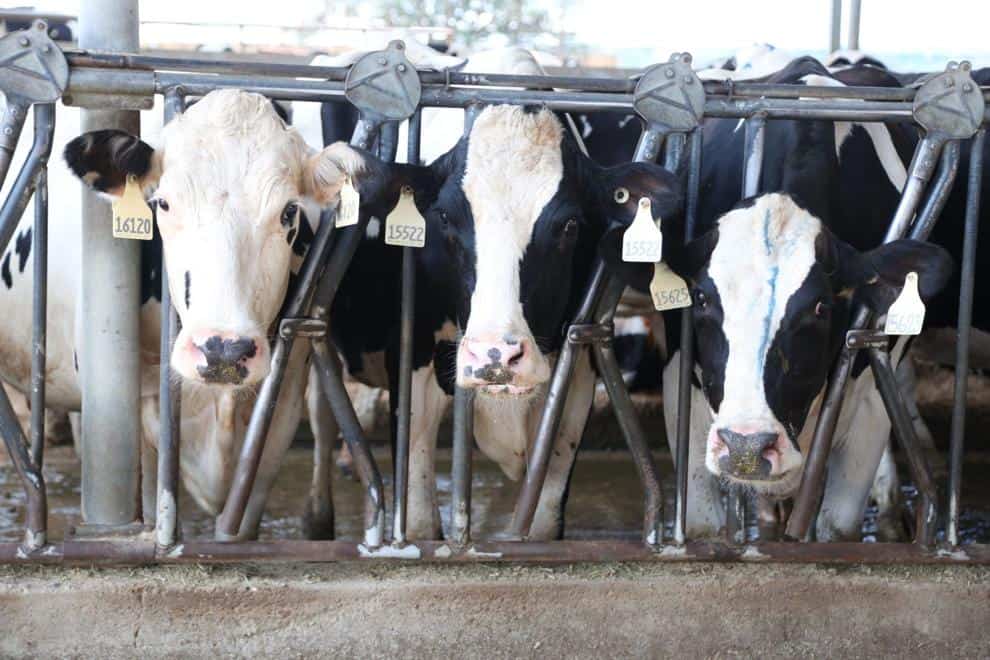
Rod Aydelotte, Tribune-Herald file photo
Despite improvement in taste and smell, “the North Bosque River is still polluted and classified as impaired by the TCEQ, and as recently as 2022, TCEQ said more work needs to be done on this watershed,” Meek said in his statement.
Calls to the Austin offices of State Rep. Charles “Doc” Anderson and State Sen. Brian Birdwell seeking comment on the legislation were not returned. Staffers for the lawmakers representing the Waco area said they would make them aware of concerns about HB 2827.
Rep. Burns, the bill’s author, said his office and dairy advocates touched base with Waco officials before the bill was filed, requesting feedback and comment on areas of concern. He said he heard nothing back.
“I heard nothing from the city until just before the recent hearing, a day or two ago,” Burns said Thursday. “Now my office is getting calls, and they have started talking about making changes to the bill, saying they may have concerns.
“I’ve said I’m always open to listening, if that’s where we’re at. But it’s really disappointing we’ve lost months in being able to have conversations, find common ground. We had nothing to hide.”
